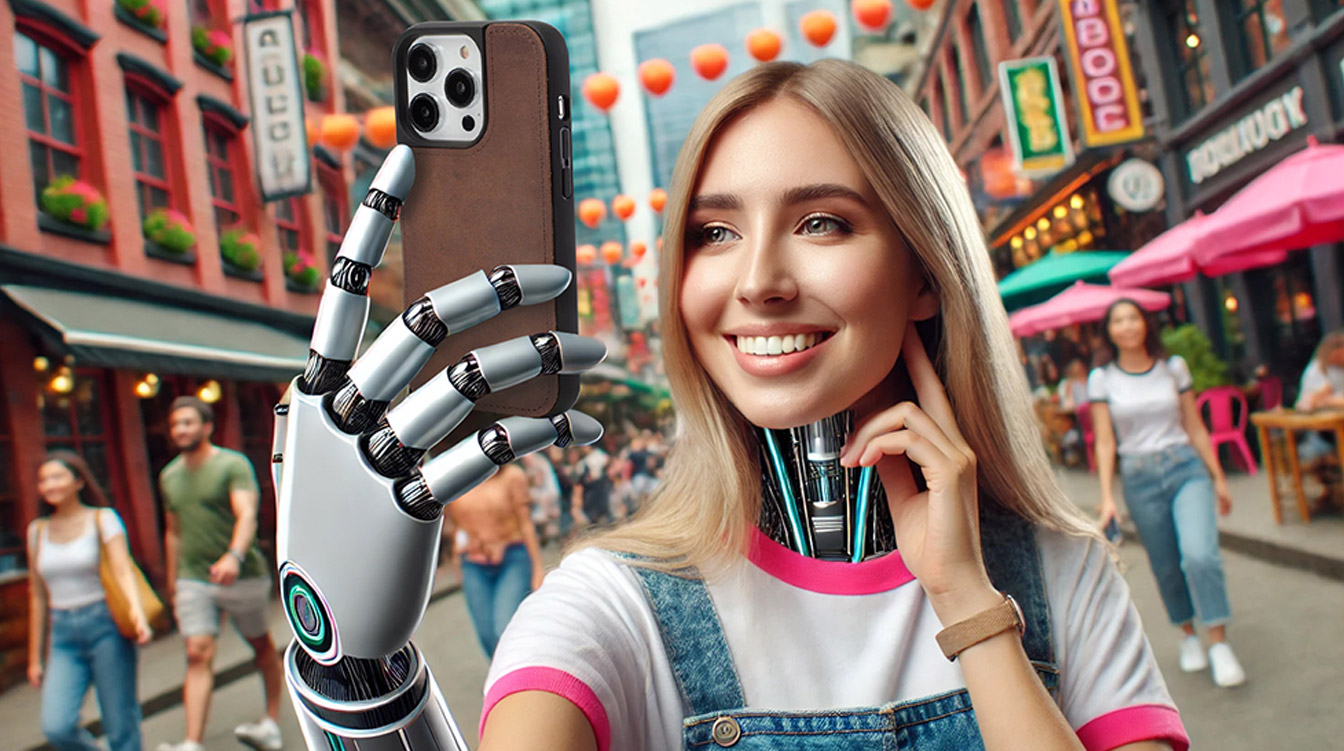
TikTok's Deep Fake Avatars and the Importance of Digital Honesty in Marketing
The Ethical Challenges of AI-Generated Influencers
TikTok's recently announced Symphony Digital Avatars might seem like a marketer's dream at first glance: AI-generated influencers that can be customised to your brand's specs, speaking any language you need, available 24/7. No more contract negotiations or scheduling conflicts. Just plug and play your marketing content with a friendly, convincing face.
What could possibly go wrong?
Quite a bit, it turns out. We've seen many times how quickly false content can spread and how challenging it is to contain once unleashed. In early 2024 the World Economic Forum even declared the spread of false information online as the number one risk to global safety.
TikTok's foray into AI-generated ad spokespeople, while hugely impressive, raises some serious questions about the future of digital honesty in marketing.
The Seductive Appeal of AI Avatars
The appeal is very clear, of course. These tools are undeniably attractive, and we'll undoubtedly see some creative campaigns emerge. Marketing is, on the surface, a relatively harmless use of this incredible (and rapidly improving) technology.
It's also, very possibly, the thin end of the wedge. By normalising the use of deepfakes in advertising, even with the best of intentions, we risk setting a precedent that could further erode public trust in media and fuel the misinformation crisis.
Generative AI video is becoming more powerful at an exhilarating and sometimes concerning rate, and tools like OpenAI's upcoming Sora and Luma AI's Dream Machinecan give anyone access to create incredibly realistic videos, including adding elements to existing footage. That's exciting, but it also carries significant risks.
The Responsibility That Comes With Digital Power
What we find is that one of the key lessons in working with advanced technology is that with great data comes great responsibility. The same is true for AI. Just because we can use a technology doesn't always mean we should—at least not without carefully weighing the potential societal impacts against the short-term gains.
The realism of these AI avatars is both impressive and unsettling. As The Verge's Jess Weatherbed noted in her review of the demo videos, they seem to cross an 'uncanny valley' threshold where they're convincing enough to potentially deceive viewers. That deceptive power is exactly what makes them so concerning.
Regulatory and Ethical Grey Areas
TikTok says they'll label AI-generated content, but will that be enough? Media lawyer Robert Freund argues these virtual influencers are 'a trap for unwary advertisers,' noting that FTC regulations require endorsements to reflect the honest beliefs of the endorser.
'They cannot possibly have used the product, so their endorsement cannot reflect their honest belief,' Freund points out. It's a legal and ethical grey area at best.
And what about the human creators whose likenesses are being used? Unlike professional actors, they don't have union protections or a framework to collectively bargain over the use of their images. As micro-influencer Kristen Bousquet told Business Insider, 'If this is something that caught on, I'd be very scared for the future of my business.'
Consent and control over digital likeness are crucial issues that Symphony Avatars glosses over in the fine print.
The Broader Implications for Digital Trust
The implications reach far beyond the creator economy. In an age where deepfakes are already being weaponised for misinformation, do we really want to further blur the lines between real and fake?
Authoritarian regimes and bad actors are already exploiting this technology to manipulate public perception. Normalising deep fakes in the advertising world, even with disclosures, could make this problem worse.
Do we want to head further down that path? Is it worth the risk for a bit of quick-hit viral marketing?
Responsible Marketing in the AI Age
The pressure to capture attention and drive engagement is intense. But we have a responsibility as marketers to think beyond the next campaign and consider the long-term implications of the tools we embrace.
By rushing to exploit deepfake technology, we're putting the credibility of our entire industry on the line.
Before you consider using AI-generated influencers, take time to reflect. Have the difficult conversations with your team about where you draw the line on digital honesty. Educate yourself on the potential misuse cases and develop clear guidelines for if, when, and how you might deploy this technology responsibly.
Finding Authentic Alternatives
The appeal of Symphony Avatars is strong, but true leadership means having the wisdom to question new technologies before fully embracing them. Our digital trust ecosystem depends on it.
As marketers, we have a responsibility to navigate this new landscape ethically and transparently. We've been working on tools to help brands connect with genuine Digital Opinion Leaders (DOLs) — real influencers whose values and audience align with your brand's mission.
Instead of relying on AI-generated avatars, why not partner with real people who can honestly advocate for your products? Contact us today to learn how we can help you find authentic influencers with an audience that suits your brand.
Patrick Charlton Published on July 3, 2024 3:18 pm

